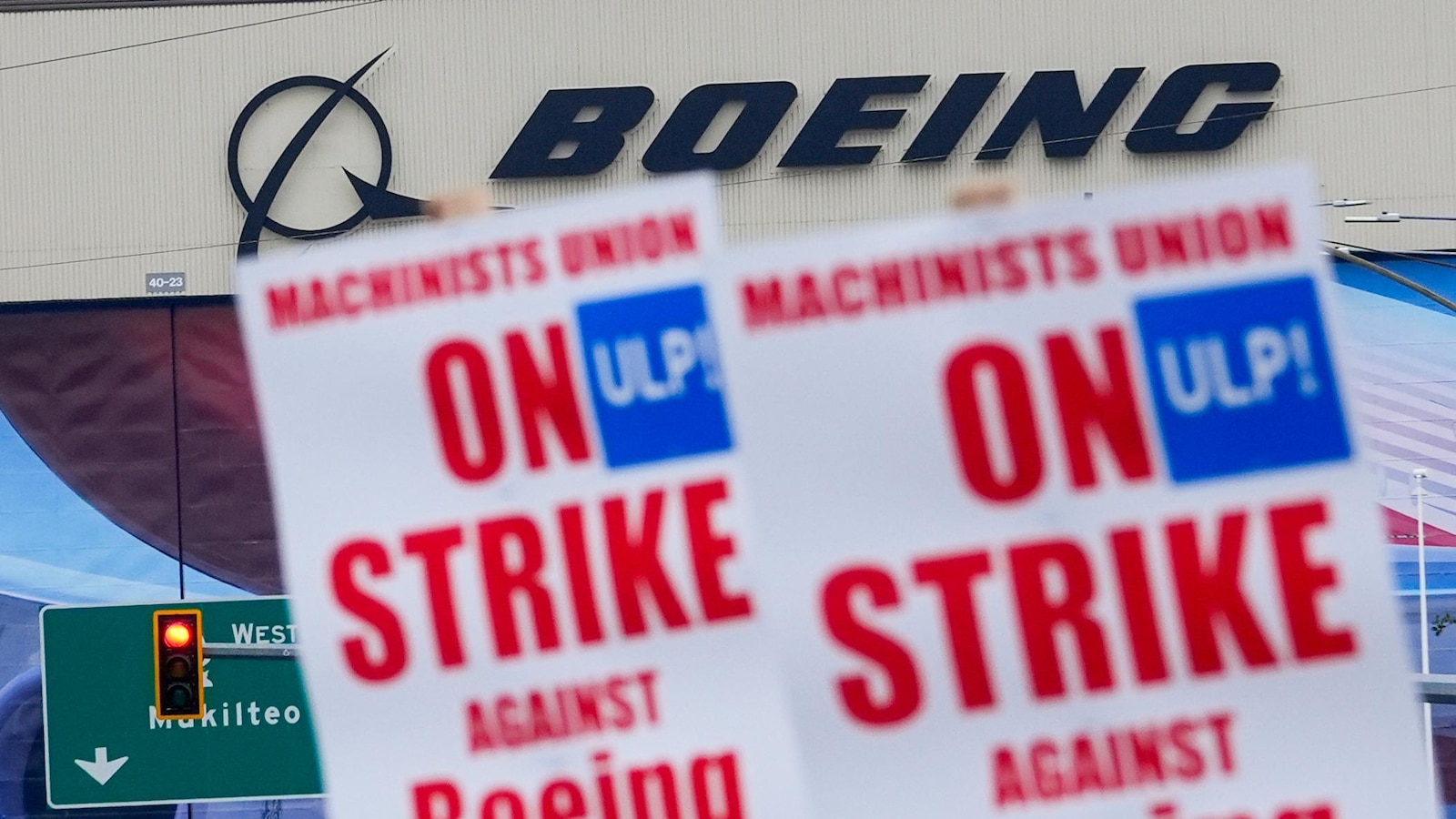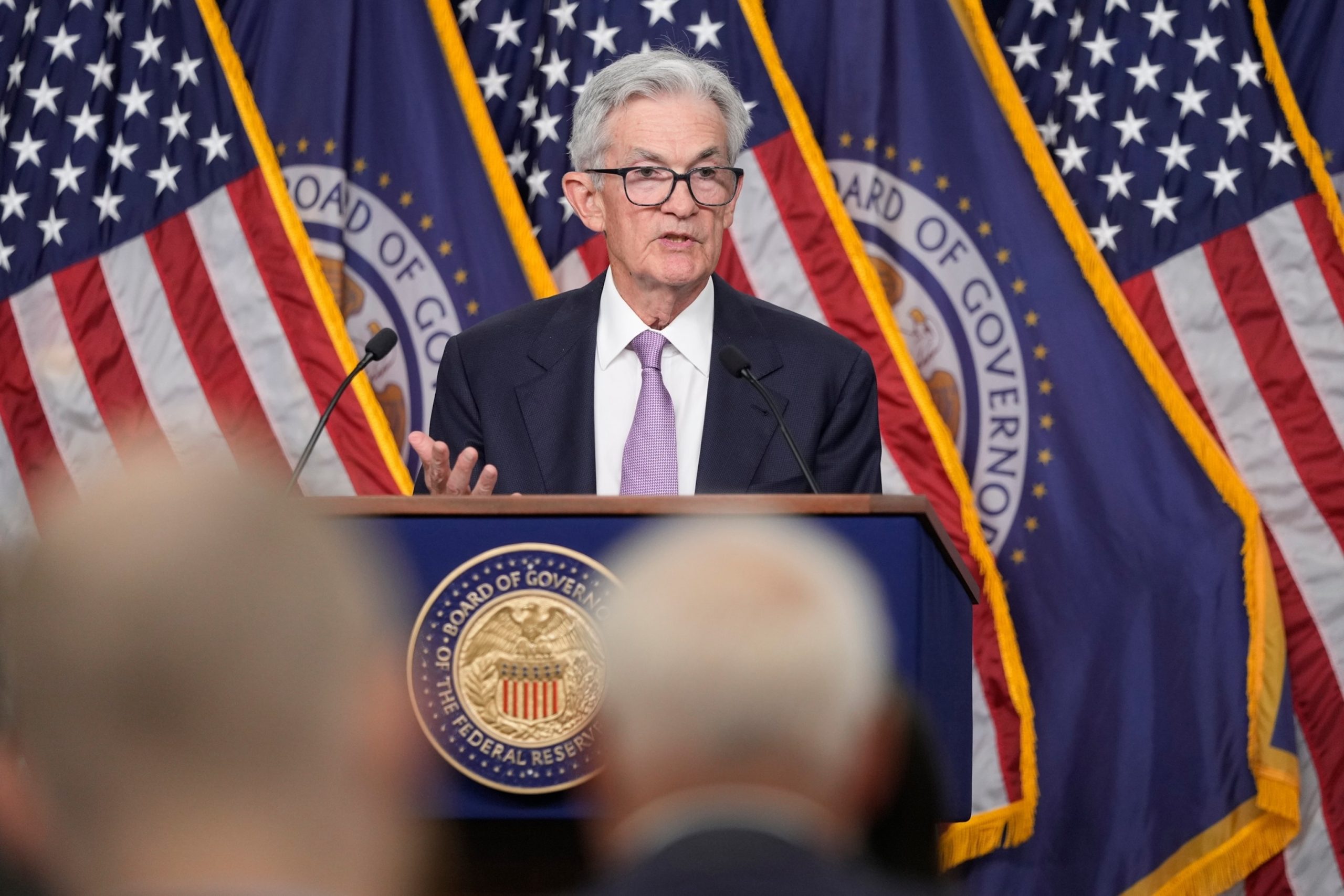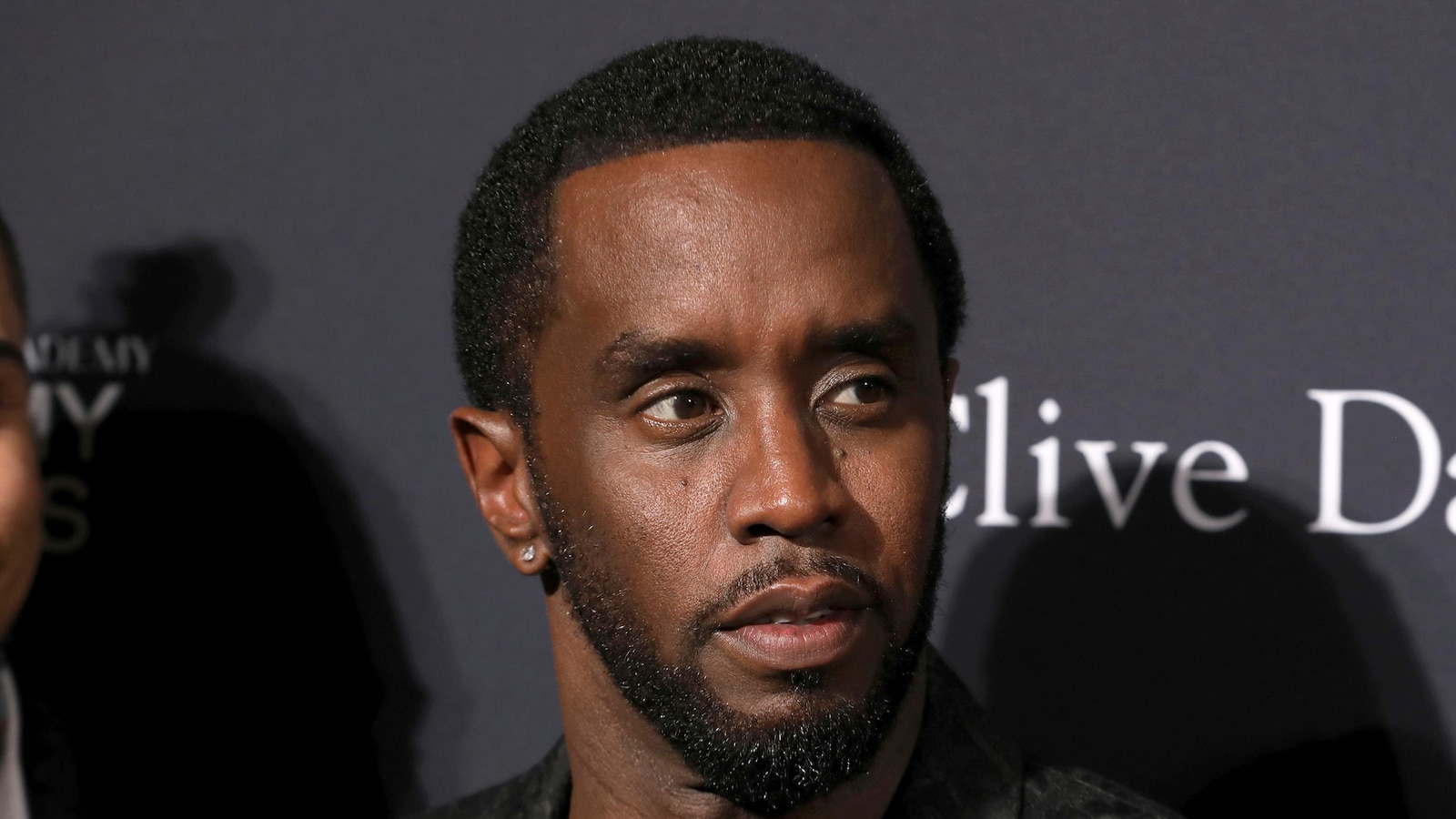
Boeing said Monday it made a “best and final offer” to striking union machinists that includes bigger raises and larger bonuses than a proposed contract that was overwhelmingly rejected.
The company said the offer includes pay raises of 30% over four years, up from the rejected 25% raises.
The new offer — and labeling it a final one — demonstrates Boeing’s eagerness to end the strike by about 33,000 machinists that began Sept. 13. The company introduced rolling furloughs of non-unionized employees last week to cut costs during the strike.
The strikers face their own financial pressure to return to work. They received their final paychecks last week and will lose company-provided health insurance at the end of the month, according to Boeing.
The company said its new offer is contingent on members of the International Association of Machinists and Aerospace Workers ratifying the contract by late Friday night, when the strike will be a little over two weeks old.
The union, which represents factory workers who assemble some of the company’s best-selling planes, said it was reviewing the offer.
“Employees knew Boeing executives could do better, and this shows the workers were right all along,” Brian Bryant, the union’s international president, said in a statement. “The proposal will be analyzed to see if it’s up to the task of helping workers gain adequate ground on prior sacrifices,”
Boeing’s latest offer includes upfront pay raises of 12% plus three annual raises of 6% each.
It would double the size of ratification bonuses to $6,000. It also would keep annual bonuses based on productivity. In the rejected contract, Boeing sought to replace those payouts with new contributions to retirement accounts.
Boeing said average annual pay for machinists would rise from $75,608 now to $111,155 at the end of the four-year contract.
The new offer would not restore a traditional pension plan that Boeing eliminated about a decade ago. Striking workers cited pay and pensions as reasons why they voted 94.6% against the company’s previous offer.
Boeing also renewed a promise to build its next new airline plane in the Seattle area — if that project starts in the next four years. That was a key provision for union leaders, who recommended adoption of the original contract offer, but one that seemed less persuasive to rank-and-file members.
The strike is likely already starting to reduce Boeing’s ability to generate cash. The company gets much of its cash when it delivers new planes, but the strike has shut down production of 737s, 777s and 767s. Work on 787s continues with nonunion workers in South Carolina.
On Friday, Boeing began requiring thousands of managers and nonunion employees to take one week off without pay every four weeks under the temporary rolling furloughs. It also has announced a hiring freeze, reduced business travel and decreased spending on suppliers.
The money-saving measures are expected to last as long as the strike continues.
Boeing, one of the world’s leading aerospace companies, has recently presented its final offer to striking union workers in an effort to end the ongoing labor dispute. The strike, which began several weeks ago, has caused disruptions in production and has put a strain on both the company and its employees.
The final offer from Boeing includes a proposed pay increase of 4% for union workers, as well as improved benefits and job security provisions. The company has stated that this offer is fair and competitive, taking into consideration the current economic climate and market conditions.
However, union leaders have expressed dissatisfaction with the offer, citing concerns over job security and the overall treatment of workers. They argue that Boeing should do more to address issues such as outsourcing and the use of temporary workers, which they believe are undermining job stability and security for union members.
The strike has already had a significant impact on Boeing’s operations, with delays in production and delivery of aircraft causing financial losses for the company. In addition, the strike has also affected thousands of workers who have been forced to picket instead of working.
Both Boeing and the union are now at a critical juncture, with negotiations ongoing to try and reach a resolution. The outcome of these talks will have far-reaching implications for both the company and its employees, as well as for the broader aerospace industry.
In the meantime, customers and stakeholders are closely watching the situation, hoping for a swift resolution that will allow Boeing to resume normal operations and meet its production targets. The stakes are high for all parties involved, and the outcome of these negotiations will shape the future of labor relations at Boeing for years to come.


